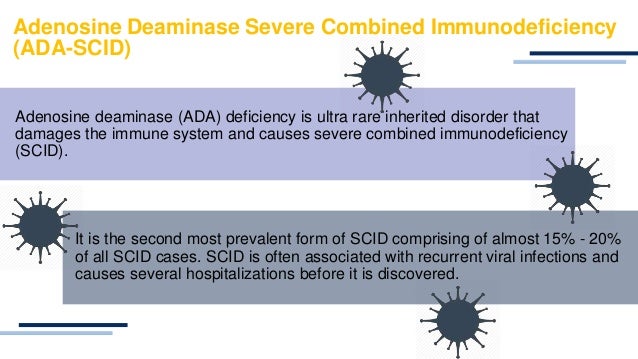


Detailed insight of the long-term outcome is still limited.

Improved overall survival (OS) has been reported compared to the use of unrelated donors, and previous studies have demonstrated that adequate cellular and humoral immune recovery can be achieved even in the absence of conditioning. Unconditioned hematopoietic stem cell transplantation (HSCT) is the recommended treatment for patients with adenosine deaminase (ADA)-deficient severe combined immunodeficiency with an HLA-matched sibling donor (MSD) or family donor (MFD). The prognosis for patients with ADA-SCID has continued to improve but these patients do have multiple early and potentially long-term conditions that require medical monitoring and management. Nineteen patients underwent autologous HSCT with gene therapy (GT) using retroviral and lentiviral vectors and all are surviving. HSCT successfully supported survival (17/26, 65%) using a variety of cell sources (bone marrow, mobilized peripheral blood, and cord blood) from sibling, family and unrelated donors. Twenty-six patients underwent allogeneic hematopoietic stem cell transplant (HSCT). The majority received enzyme replacement therapy (ERT) at some time, including 88% of those born since 2010. These patients had multiple infections and pulmonary, gastrointestinal, and neurological complications. Overall survival was 79.7%, which increased to 94.1% since 2010. Median age at diagnosis was 1 month for those with a positive family history and 3 months for those without a prior family history, with some diagnosed at birth and one as late as 9 years of age. Sixty-four ADA-SCID patients born between 19 had clinical data entered by their local (or home) enrolling institution. Immunodeficiency Network (USIDNet) Repository were analyzed. Clinical data from ADA-SCID patients registered in the U.S.


 0 kommentar(er)
0 kommentar(er)
